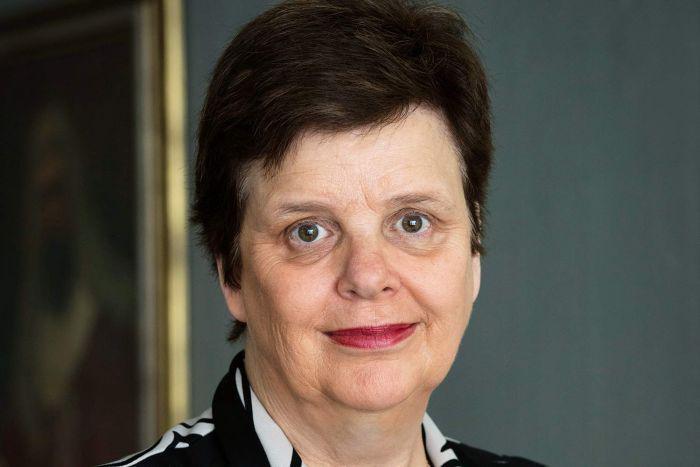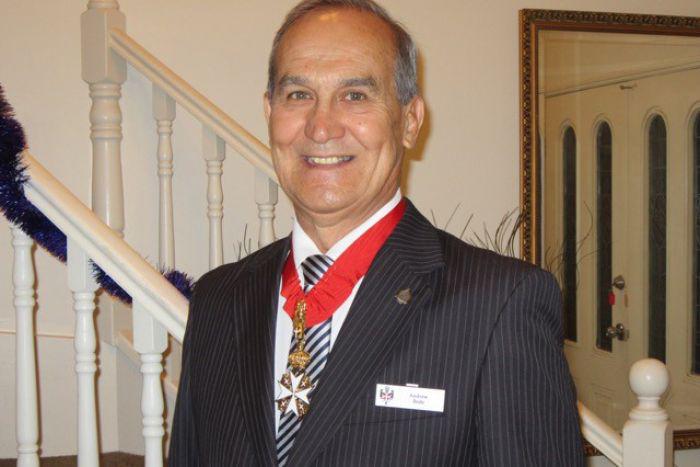|
Victims critical of Paul de Jersey's intervention in church debate on limiting abuse cases
By Josh Robertson
Queensland Governor and former chief justice Paul de Jersey and a fellow judge played a key role in thwarting an internal push by Anglican clergy for the church to abandon a contentious legal defence against child sex abuse claims, victims and their supporters say. Abuse survivors and supporters have criticised the judges' intervention in the 2009 general meeting of the Anglican Brisbane Diocese, which voted down a motion to stop using legal time limits. The limits forced victims to sue by the age of 21, effectively limiting any institution's potential legal exposure. The motion, which called on the church to "set an ethical lead in the community by ... not invoking the statute of limitations defence", would have set a nationwide precedent. But the Queensland Governor, who in 2009 was chief justice and chancellor, or legal advisor, to the diocese, warned the church would lose its insurance. According to notes of the meeting by an abuse survivor, the chief justice also referred to victims suing because of the church's "deep pockets". It comes after legal experts raised doubts about the appropriateness of judges' roles as legal advisors to the church. This included a perceived conflict of interest for Justice de Jersey over his role in a 1998 legal review of time limits, including in child sex abuse cases. 'The insurer's call'The chief justice in 2009 supported an amendment moved by deputy chancellor and fellow Supreme Court Justice, Debra Mullins, which tempered the motion on time limits. It asked the diocese instead to negotiate with insurers to "establish a protocol for dealing with claims by victims of child sex abuse when the diocese considers it appropriate not to invoke the time limitation defence". The proviso was "without losing indemnity from our insurers". The diocese had for several years lobbied the Queensland Government to scrap the time limits. But it was not until 2016, after the royal commission called for the urgent scrapping of a "great injustice", that time limits were abolished by the State Government. According to the victim's 2009 notes, Justice de Jersey told the meeting that sometimes the church might want to use the time limit defence, for example if it was concerned a fair trial could not be had because of the lapse of time, but it was "the insurer's call". The notes state he argued if the church walked away from that, it was effectively "condemning itself" to carrying the entire financial burden of resolving victims' claims. In the notes, Peter Shayler-Webb, the priest who put the motion to stop using time limits, took exception to the chief justice's comment. "I find it rather strange that the chancellor should use the words, 'We condemn ourselves to be financially liable' ... for things that we have done," he said. "We are taking accountability and responsibility for what has happened to people in our care." Victims 'insulted'Victims and their supporters say the judges' intervention sent a troubling message to abuse survivors. One victim, who had a live case in which the church conceded the abuse but invoked the lime limit, said he was "insulted" when he heard the "deep pockets" comment.
"Victims sue the diocese because of the overwhelming evidence that the diocese knew about the abuse and knew about the offenders yet did nothing to stop the abuse nor prevent further abuse." Psychiatrist and abuse trauma expert Warwick Middleton said he had spoken to another victim who was at the meeting and felt that opinions were being expressed "about the potential for people to get on the gravy train and bleed the church dry". "One's got to be very, very careful for the words that are said in public forums in respect to the victims who are also in the forum listening to this, saying, 'We've been abused by this church and now we're hearing the considered view of the church coming down to a question of economics'," he said. Andrew Bode, a victims advocate and Griffith university academic who spoke out against the judges' "economic" argument, said it was "not a moral approach". But Dr Bode said he felt the judges managed to "stifle the debate" and decisively swing the vote "by virtue of their position". "Here we have the chief justice or the chancellor, and the deputy chancellor, in great positions of power, within that synod, and obviously speaking to support something I guess that they believed was quite correct," he told the ABC. "And yet other people within the floor of the synod may have disagreed but were perhaps intimidated by their position.
"But on the other hand to stifle it, to me was not the right thing to do." Judge defends positionJustice Mullins said she did not agree that "my intervention ... carried weight because of my 'public stature' as a Supreme Court judge". "My views have not always prevailed in debates at the Synod, which comprises approximately 400 lay people and clergy," she told the ABC. Justice Mullins said she moved the amendment "because, in 2009, my belief was that the diocese should not abandon reliance on the limitations defence, if that would deprive the diocese of the benefit of indemnity from its insurers". "You should note that for a number of years before that synod, the diocese had been calling on the Queensland state government to abolish time limitations in child sexual abuse cases," she said. Governor Paul de Jersey declined to comment.
|
.
Any original material on these pages is copyright © BishopAccountability.org 2004. Reproduce freely with attribution.




